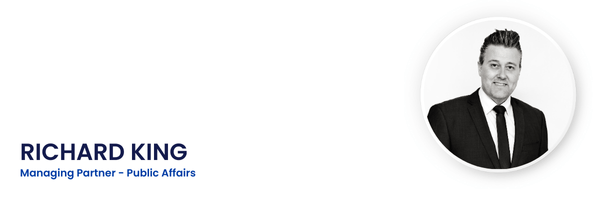With cost of living the number one issue among voters, all eyes were on the RBA this week as it announced the first cut to the cash rate since the pandemic.
While Governor Michele Bullock used her media conference to state that this week’s cut does not imply “further rate cuts along the lines suggested by the market are coming”, Treasurer Chalmers said “this is the soft landing that we have been planning and preparing for.”
Shadow Treasurer Angus Taylor took another view, saying that for many Australian families, this was ‘too little, too late’. The brush strokes of the election positioning about who is better placed to manage the economy couldn’t be clearer.
And it won’t be long until the election campaign now. The Prime Minister could take a trip to see the Governor-General this weekend. With a minimum 33 day campaign, a March 29 election is a potential, but so too is the possibility the PM waits a week or two and goes for a Saturday 5 or 12 April poll date. It’s his decision to wait right up to that 17 May deadline date.
So while this week we may have got monetary policy certainty, we don’t have election timing certainty, just yet.
Top talking points
📊 Newspoll Update: The Coalition leads Labor 51–49 on a two-party preferred basis, while Anthony Albanese remains the preferred Prime Minister over Peter Dutton 45–40.
✈️ Virgin and Qatar Airways Alliance Cleared: The ACCC has signalled five-year approval for a major partnership between Virgin Australia and Qatar Airways.
🤝 Australia-Canada Trade Talks: Trade Minister Don Farrell met with Canadian Minister Mary Ng to strengthen the $11 billion trade relationship, with a focus on agriculture, clean energy, and technology.
🏦 Insurance Market Reform: Opposition Leader Peter Dutton suggested that a Coalition Government would establish divestiture powers for the insurance sector if elected.
🚆 Sydney Rail Strikes Paused: The Fair Work Commission has suspended industrial action on Sydney’s train network until 1 July.
Making headlines this week
Foreign housing investment ban
In a major shift on housing policy, the Federal Government has announced a two-year ban on foreign investors, including foreign-owned companies and temporary residents, from purchasing established homes in Australia. The ban, which closely mirrors a Coalition policy announced in 2024, will take effect from 1 April and expire on 31 March 2027.
The Government says the move is aimed at easing pressure on housing supply, though exceptions will be made for investments that significantly increase housing availability.
As part of the announcement, the Government has also committed additional funding to support compliance and oversight:
📊 $5.7 million over four years will go to the ATO’s foreign investment compliance team to monitor residential property investments.
🔍 $8.9 million from 2025-26 will fund an audit program targeting foreign investors engaged in land banking.
Further guidance from the ATO and Treasury will be released before the ban comes into effect.
Whyalla Steelworks administration
In a significant intervention, the Whyalla Steelworks has been placed into administration after the South Australian Government acted on unpaid royalties owed by GFG Alliance. Despite triggering the administration, the state and federal governments have announced a $2.4 billion support package to stabilise operations, protect jobs, and transition the facility towards green steel production.
💰 Immediate Support ($100 million): Funding for creditor assistance, infrastructure upgrades, and a jobs and skills hub.
🏭 Steelworks Stabilisation ($384 million): Ensures continued operations and worker retention during administration.
🌱 Future Investment ($1.9 billion): Infrastructure upgrades and up to $500 million for green steel production.
A joint taskforce will oversee the transition, with input from local government, workers, administrators, and creditors. The Northern Water Supply Project desalination plant is also expected to be located at Mullaquana.
Things to watch
🔥Pre-Election Moves to Watch: Anthony Albanese and Peter Dutton will continue touring key marginal seats, setting the stage for what’s shaping up to be a closely contested election.
🏛 Budget Estimates in Focus: Ministers and senior bureaucrats will front Senate Committees next week for Additional Budget Estimates, which may be the last hearings before the election.
🎓 Universities Australia CEO to Address National Press Club: Luke Sheehy will speak on Wednesday, discussing the challenges and future of Australia’s higher education sector amid ongoing policy uncertainty.
Economic updates and fiscal policies
Wage growth remains sluggish, with the Wage Price Index increasing by 0.7 per cent in the December quarter, marking the slowest growth since March 2022. At the same time, the Business Council of Australia has called for an economic reform agenda in its pre-Budget submission, advocating for workplace law reforms, fiscal spending rules, and broader deregulation to drive long-term productivity.
Meanwhile, the Coalition has pledged financial services deregulation, with Shadow Treasurer Angus Taylor outlining[paywall] plans to ease lending rules, lower serviceability buffers, and increase competition in borrower financing.
Across the Tasman, the Reserve Bank of New Zealand has cut its cash rate by 50 basis points, reducing it from 4.25 per cent to 3.75 per cent, citing slowing economic growth.
Diplomacy, defence, and strategic engagement
Australia-China relations were in focus this week as the 23rd Australia-China Defence Strategic Dialogue took place in Beijing, with discussions covering regional security and military cooperation. In a broader diplomatic update, Foreign Minister Penny Wong announced new ambassadorial appointments across Europe, Asia, and the Pacific, reinforcing Australia’s international engagement.
In defence, the Australian Defence Force’s 12 UH-60M Black Hawks have now reached initial operational capability, strengthening Australia’s military aviation capacity. Supporting the next generation of defence workers, the Government has also awarded $11 million in educational grants through the Schools Pathways Program, encouraging STEM students to pursue careers in the sector.
Energy leadership, environmental funding, and industry oversight
The Federal Government has appointed James Cain as the new Chair and Non-Executive Director of Snowy Hydro, with his three-year term commencing on 1 March. Cain will oversee Snowy Hydro’s operations and ongoing projects as part of Australia’s renewable energy infrastructure.
In environmental funding, the Australian Institute of Marine Science’s National Sea Simulator will receive $42.7 million to expand research into the Great Barrier Reef’s resilience and conservation efforts.
Meanwhile in Victoria, the Port of Hastings wind project has been referred[paywall] to the Independent Broad-based Anti-corruption Commission (IBAC) by the Victorian State Opposition, following the release of documents obtained through a Freedom of Information request. The referral raises questions about project approvals and transparency in Victoria’s renewable energy sector.
Digital inclusion and regional investment
Applications have opened for three federally funded digital inclusion programs under a $68 million investment in the 2024-25 Budget. The programs aim to improve internet access and digital connectivity for First Nations communities, with funding available for community Wi-Fi, digital support hubs, and mentoring initiatives.
In regional development, four projects across New South Wales will share $21 million in funding for social infrastructure, supporting economic growth and community facilities in regional cities.
Education leadership, workplace protections, and family safety measures
Professor Kerri-Lee Krause has been appointed as Chief Commissioner and Emeritus Professor Elizabeth More AM as Commissioner of the Tertiary Education Quality and Standards Agency for five-year terms, overseeing higher education regulation and standards.
A new Anti-Bullying Rapid Review is underway, with Dr Charlotte Keating and Dr Jo Robinson appointed as co-chairs. In collaboration with states and territories, the review will work towards a national standard to address bullying in Australian schools.
The House Standing Committee on Social Policy and Legal Affairs has released its final report recommending 11 measures to strengthen family violence orders, improve court processes, and ensure sustainable funding for support services.
Consultation is also underway on reforms to the Fair Entitlements Guarantee, aiming to prevent corporate misuse of the scheme and ensure employees receive their entitlements.
In case you missed it...
📺 Clive Palmer unveils his new ‘Trumpet of Patriots’ party, vowing to “drain the swamp” and reshape Australian politics:

